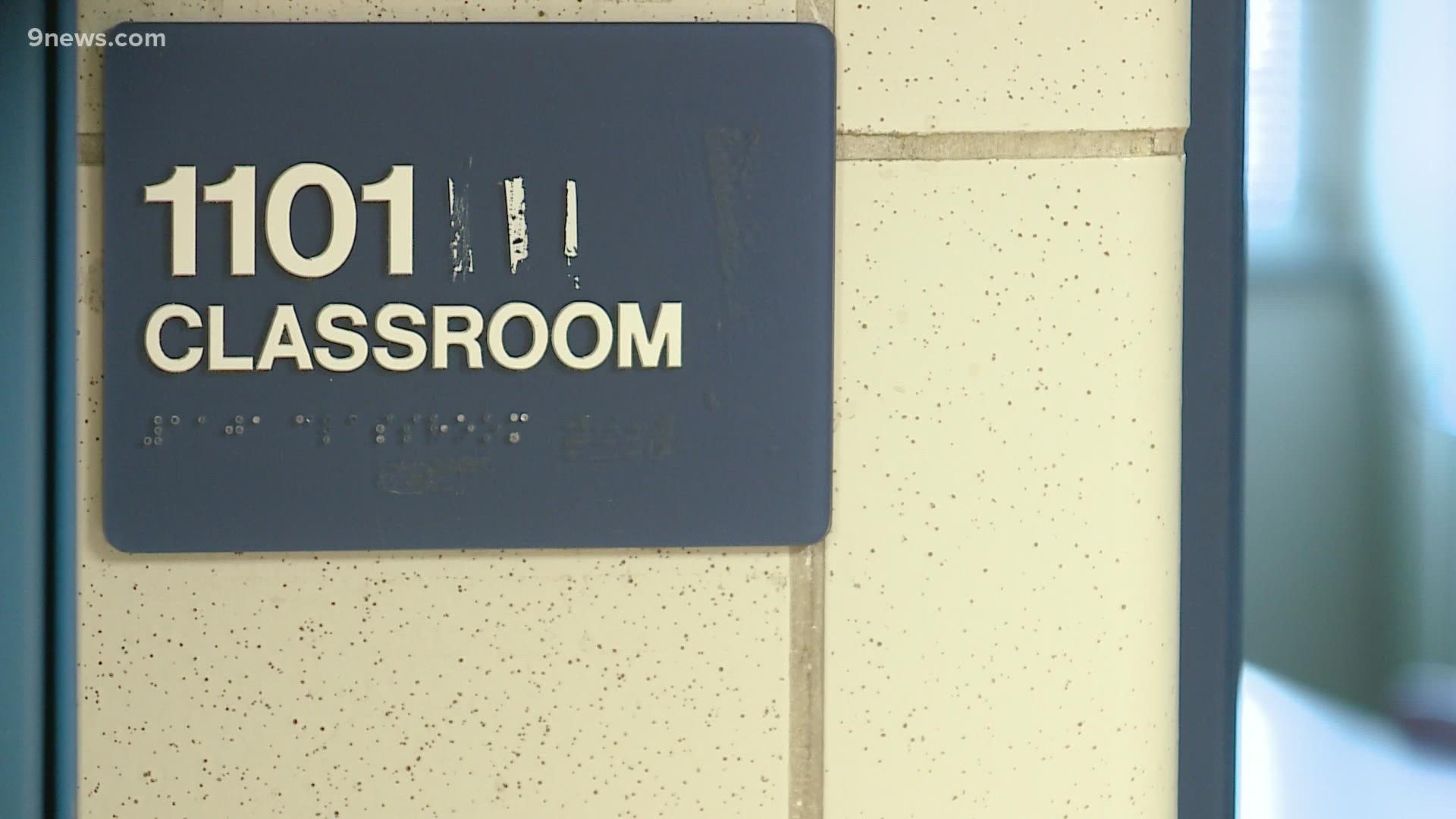AURORA, Colo — The substitute teacher pool and support staffing numbers are so low around Colorado, school districts are getting creative with finding fill-in help.
In Aurora, sometimes it’s the superintendent.
“Aurora Hills Middle School is his assignment---on Tuesdays,” chief communications officer Patti Moon said.
From administrators like superintendent Rico Munn, to other district-level staff, hundreds of non-classroom employees are now spending one day a week inside schools offering help.
Moon is part of it, too.
“I’m the support person for Iowa Elementary,” she said. “I helped teach third grade reading and writing, and kindergarten reading and writing.”
Aurora Public Schools (APS) said the district’s normal substitute teacher pool is between 500 and 600 people. Currently, it’s below 300.
Moon said about half the time APS needs a sub right now, they can’t find one. Moon said the district is also struggling to staff support positions like paraprofessionals and campus monitors.
APS said district staff members with teaching licenses fill in with more traditional teaching roles, like covering lesson plans in the classroom. The ones without teaching licenses fill in with more support-style roles – like the school office, lunchroom, or recess duties. The help from district headquarters staff started in mid-November.
APS isn’t alone in staffing struggles.
This semester, schools in Denver, Boulder, and Adams County had to either move remote for a few days, or cancel school for a day, due to staffing shortages. Many districts are offering new incentives and more money to attract substitute teachers.
Even financial incentives aren’t the perfect solution, Moon said.
“We haven’t necessarily seen stipends work across the metro and nationally,” she said. “Yes, it might seem like it brings people in, creates higher fill rates, solves problems – but we're not seeing that happening.”
APS is considering other incentives for substitutes, as well as brainstorming long-term solutions in case the staffing challenges continue beyond this year. Also, starting in January, APS plans to start school one hour late on Mondays to give full-time teachers – already stretched thin and filling in, too – more planning time.
For almost two years, the pandemic has caused disruption after disruption to schools and students. APS hopes this solution keeps students learning on track.
“Continuity, right?” Moon said. “We want to maintain learning environments as much as possible. That’s what this is trying to do.”
“We are really trying to be creative, make sure we're serving students in the best way we can,” she said. “That means having as many caring adults in our buildings to support learning every day, so this is part of that effort.”
SUGGESTED VIDEOS: Education stories from 9NEWS

